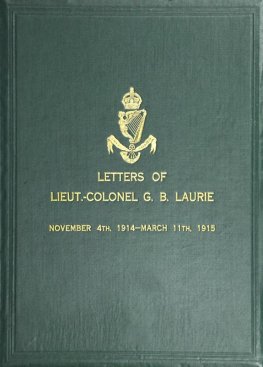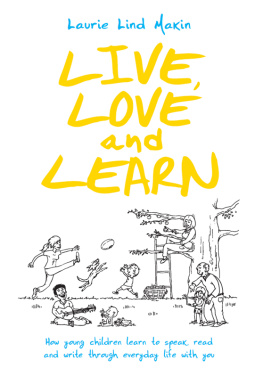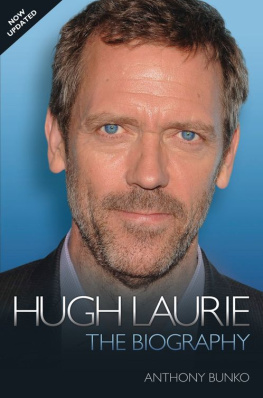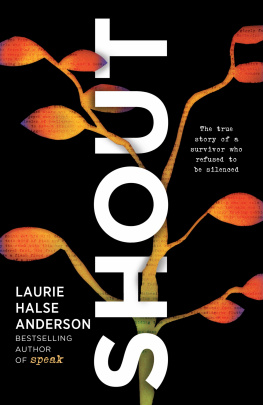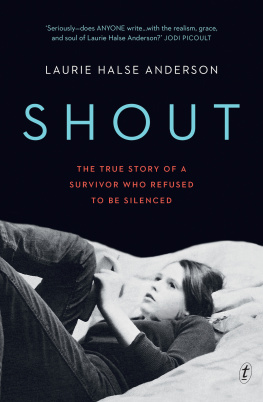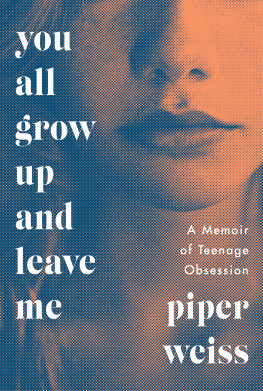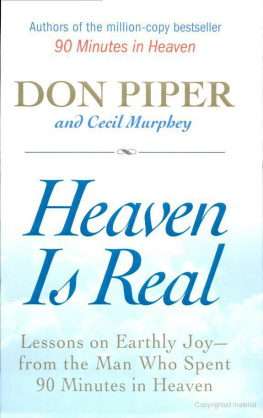Piper Laurie - Learning to Live Out Loud: A Memoir
Here you can read online Piper Laurie - Learning to Live Out Loud: A Memoir full text of the book (entire story) in english for free. Download pdf and epub, get meaning, cover and reviews about this ebook. year: 2011, publisher: Crown Publishing Group, genre: Non-fiction. Description of the work, (preface) as well as reviews are available. Best literature library LitArk.com created for fans of good reading and offers a wide selection of genres:
Romance novel
Science fiction
Adventure
Detective
Science
History
Home and family
Prose
Art
Politics
Computer
Non-fiction
Religion
Business
Children
Humor
Choose a favorite category and find really read worthwhile books. Enjoy immersion in the world of imagination, feel the emotions of the characters or learn something new for yourself, make an fascinating discovery.

- Book:Learning to Live Out Loud: A Memoir
- Author:
- Publisher:Crown Publishing Group
- Genre:
- Year:2011
- Rating:5 / 5
- Favourites:Add to favourites
- Your mark:
- 100
- 1
- 2
- 3
- 4
- 5
Learning to Live Out Loud: A Memoir: summary, description and annotation
We offer to read an annotation, description, summary or preface (depends on what the author of the book "Learning to Live Out Loud: A Memoir" wrote himself). If you haven't found the necessary information about the book — write in the comments, we will try to find it.
Learning to Live Out Loud: A Memoir — read online for free the complete book (whole text) full work
Below is the text of the book, divided by pages. System saving the place of the last page read, allows you to conveniently read the book "Learning to Live Out Loud: A Memoir" online for free, without having to search again every time where you left off. Put a bookmark, and you can go to the page where you finished reading at any time.
Font size:
Interval:
Bookmark:
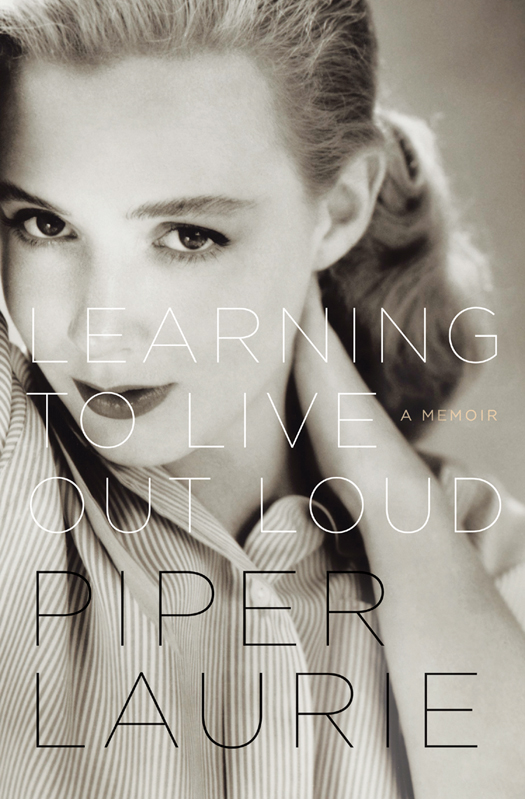
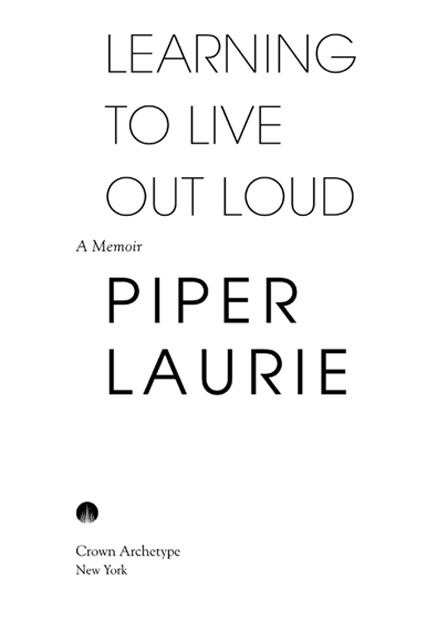
Copyright 2011 by Piper Laurie
All rights reserved.
Published in the United States by Crown Archetype, an imprint of the Crown Publishing Group, a division of Random House, Inc., New York.
www.crownpublishing.com
CROWN ARCHETYPE with colophon is a trademark of Random House, Inc.
Library of Congress Cataloging-in-Publication Data is available upon request.
eISBN: 978-0-8230-2677-7
Photographs courtesy of the authors private collection
Jacket photography: John Springer Collection/Corbis
v3.1
For Anna
If you asked me what I came into the world to do,
I will tell you: I came to live out loud.
mile Zola
W hen I was fourteen, a mustachioed middle-aged agent took me to meet Howard Hughes. Mother didnt come along. She believed there would never be hanky-panky if I were alone with a truly successful man. She said, He wouldnt be stupid enough to get into trouble. She also thought the encounter would be good practice for my speaking skills. I rarely spoke. And never with strangers.
A few days before, the agent had asked my mother for permission to take me to a coffee shop for lunch and then repeatedly asked me if I had a boyfriend. All I could muster in response was a sound that I hoped would be taken for a giggle.
Three days later the agent and I were driving slowly through dark studio streets. I tried hard to control my panic. Nothing is as mysterious as a deserted studio at night. We passed many soundstages until we reached the very back of the lot and parked in front of a small frame bungalow. The agent helped me out of the car and escorted me up two steps, directly into a tiny, dimly lit office.
Hughes was sprawled back in his chair, his feet in sneakers resting on the desk with ankles crossed. He was long and thin, to my art students eye his head seemed a bit too small for his body.
They told me to sit in the chair close to the desk. I sat. The mustachioed man who had delivered me quickly disappeared, saying, This is Rosetta. Shes not quite fifteen and doesnt she have beautiful red hair?
Hughes barely looked at me, but he would sneak a peek from time to time. Neither of us spoke; the room remained so very quiet. After a while Hughes mumbled something to me that I couldnt comprehend. I heard the words but couldnt make sense of them, and I waited for an explanation that never came. The two of us just sat there silently in the dim light, waiting. For what, I had no idea. But I was grateful he didnt ask any questions.
A long time passed, perhaps a half hour, when the agent finally reappeared looking surprised and suggesting it was time to go. As I rose from my chair, Hughes stood up and moved over to me, mumbling something. He looked me in the eye for a few warm and dazzling seconds. The look seemed to say, Its all right, dear. Dont worry. We shook hands, and I walked out the door feeling he was a kind man.
Years later I would understand that this was at the beginning of Hughess period of extreme isolation and illness, and that many young girls were being brought to him for his enjoyment. Perhaps my silence that day, my own isolation, was a reflected image he preferred to avoid. In my naivet, I fantasized all the way home about how wonderful it would have been to speak out whenever I pleased, as others did. Not for a moment did I sense the sordidness of the aborted meeting or recognize we were two socially crippled travelers going in opposite directions. I simply sat there in the car, wondering how disappointed my mother would be that my speaking practice had failed that day.
Home
M other loved to tell everyone about the night before I was born, when dear Uncle Schmule came to the foot of her bed and spoke: Hello, Charlotte or do you prefer Sadie?
Uncle Schmule had died the week before, but Mother said she saw him quite clearly, with his magnetic blue eyes that pierced right through her body. He was a handsome, bearded, wise man whom everyone loved, and he told her that her child would be born in the morning and be a good and blessed person. Ive always felt slightly burdened by the implicit challenge in the story, and wished Id never heard it.
A male midwife delivered me in a one-bedroom walk-up on Tyler Street in Detroit on January 22, 1932. Father declared that night that childbirth was much too difficult to abide and they would have no more. In spite of all the drama, I appeared to be a healthy child, unlike my fragile older sister, Sherrye. They named me Rosetta and called me Sissy, but later most would know me by another name, Piper Laurie.
Like most Americans, our family had come to America in search of a better life. My fathers parents had traveled across the Atlantic from Poland in a boat filled with Jewish immigrants. Our zaddi changed his name from Abraham Jacobovitch to Abraham Jacobs and settled in Detroit with my bubbi, Deborah. Together they had eleven children, nine of whom survived. My father, one of the oldest, quit school after eighth grade and went to work in his fathers bakery so that his seven younger sisters and brothers could finish high school. It was not unusual at the time for young men to forgo their education so they could help support their families.
My mothers parents, Samuel and Anna Alperin, had emigrated from Russia. Their three children, including my mother, were born in America. After the birth of their son, Manny, my grandpa left his family and became an itinerant cowboy, roaming the West on his horse. Grandma carried on supporting the family with her sewing. My mother could never forgive her father for deserting them, and my grandma never forgave him for not giving her a Jewish divorce, called a get. The essential meaning of the get is, You are hereby permitted to all men. They were legally divorced, but that was an entirely different thing.
My mother retained a code of ethics completely her own. When she was ten, a car ran over her leg, and she considered it an honorable act not to tell her mother and to suffer the damage quietly. When she began to work, she turned every paycheck over to her mother, who must have been something of a tyrant in those days.
One night my mother met my handsome and gentle dad, who danced divinely. Mother was smitten. She broke her engagement to a wealthy young attorney and married my father instead. They had little in common except for a love of ballroom dancing and a need to survive. My sister Sherrye, born a year later, was sickly with asthma and had to be taken to the hospital several times close to death. I was born two and a half years later.
Supporting two babies wasnt easy in the middle of the Depression. My parents lightened their life by turning on the radio and dancing in their tiny apartment.
I think my mother used magic to make her delicious soups for us. I was told more soup were my first words, but not too many followed. My parents took it for granted that I seldom spoke. I dont know when people first noticed my silence. It was bewildering to find the right words. I could hear them; they seemed to be flying all around me but not where I could grab on, especially when I knew someone was waiting. Peoples patient expectation caused me to panic inside. It would be almost a lifetime before I found out that my difficulty had a name: acute anxiety disorder. Its not an uncommon or traumatic burden nowadays, if attended to.
Font size:
Interval:
Bookmark:
Similar books «Learning to Live Out Loud: A Memoir»
Look at similar books to Learning to Live Out Loud: A Memoir. We have selected literature similar in name and meaning in the hope of providing readers with more options to find new, interesting, not yet read works.
Discussion, reviews of the book Learning to Live Out Loud: A Memoir and just readers' own opinions. Leave your comments, write what you think about the work, its meaning or the main characters. Specify what exactly you liked and what you didn't like, and why you think so.

